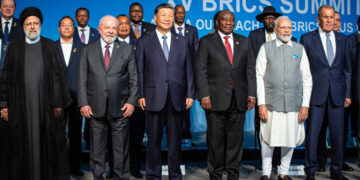Wafa Alsaleh was one of three Saudi Human Rights Commission (HRC) members who visited prominent woman human rights activist Loujain Alhathloul in prison and received from Alhathloul reports of torture, including sexual assault, electrocution, death threats and other forms of mistreatment.
Not only did she not investigate Alhathloul's claims of torture, a gross human rights violations, she also did nothing to protect Alhathloul from further mistreatment.
"Wafa Alsaleh seems to have misunderstood her role as a human rights commissioner," said Sevag Kechichian, Gulf Researcher at Dawn. "Her role is not to protect the Saudi state and its rulers, or to whitewash their record, but to protect individuals from violations and abuses by anyone, including the country's rulers."
According to Alhathloul's family and a memorandum they submitted to a Saudi court, on or about November 26, 2018, a committee from the Saudi governmental Human Rights Commission visited Alhathloul in the State Security Presidency's Dhahban Prison to inquire about her allegations of torture, sexual harassment, electrocution, and mistreatment. Saudi security forces had arrested Alhathloul and other women's rights activists on May 15, 2018, because of their activism against the ban on women driving and advocacy for protections against domestic violence. The visiting committee included Alsaleh, Amal al-Moallimi and Samha Saeed Alghamdi.
As reported by her family and in court records, Alhathloul told the three members of the Commission about the incidents of mistreatment, torture, sexual harassment, electrocution, and threats of rape she endured in prison. Alhtathoul asked them, "Will you be able to protect me?"
According to her family, the Commission members said they could not help her. There is no indication that Alsaleh or her colleagues took any action regarding Alhathloul's complaint. In its annual reports, the Commission mentioned having received complaints about torture and mistreatment but did not list any action taken. Indeed, months later, a representative of the Human Rights Commission spoke to the Saudi media outlet Okaz, denying reports of torture and mistreatment in Saudi prisons.
The refusal of Alsaleh and her colleagues to investigate Alhathloul's complaint and take appropriate action violated their obligation under the Saudi Statute governing the Commission, to "receive and verify complaints related to human rights and take legal measures pertaining to them." Indeed, in its 2019 annual report, the Commission wrote that its members "monitored the procedures and trial to make sure that individuals got their rights according to the law."
"People like Alsaleh need to understand that they will be exposed for their failures," said Kechichian. "Being a human rights commissioner or defender is a sacred duty. Many vulnerable lives depend on it. To betray it in this way is unacceptable."
Al-Saleh graduated from King Saud University in Saudi Arabia, and obtained her Master's from the same school in the field of Special Education. She obtained her PhD from Princess Nourah University in Saudi Arabia, in the field of curriculum and teaching methods. Prior to joining the Human Rights Commission, she held multiple positions in the Ministry of Education, including serving as a consultant to the Minister of Education from 2011 to 2015.
See cases: Loujain Alhathloul
DAWN contacted Wafa Alsaleh on December 9, 2020 to request a response, but no response was received by the time of publication.
Watch the video on Wafa Alsaleh here:
***
Tweet to Wafa Alsaleh here and the Saudi Human Rights Commission here. Tell them to stop covering up torture in Saudi prisons.
About DAWN's culprit gallery:
Tyrants need enablers who will implement their oppressive practices, even if it means abusing their fellow citizens. These agents often mask their complicity in the guise of professionals exercising their duties in offices, courtrooms, police stations, and interrogation rooms.
DAWN seeks to disclose the identity of the state agents who enable repression and, to make them recognizable at home and abroad. These individuals, whom DAWN calls "culprits," bear administrative, civil, moral, legal, and/or political responsibility for human rights and international humanitarian law violations.





































